Paperbacks from Hell #3: THE REAPING by Bernard Taylor
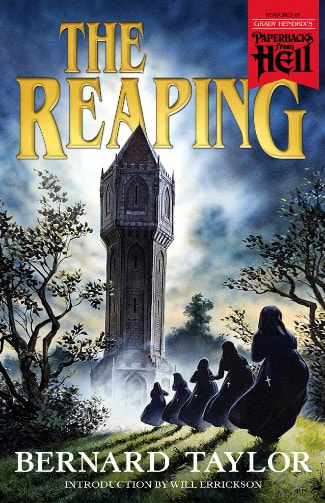
The story just exudes a gothic atmosphere that gets increasingly bizarre in ways that simultaneously attract and repel Rigby and the reader. There’s a slow build of discomfort and the sense that something is just a bit off, slowly increasing in creepiness as Rigby’s curiosity and failings further entrap him in the situation.
Book Review: A Drop of Corruption, by Robert Jackson Bennett
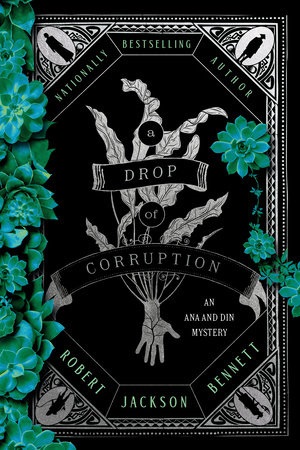
Anyone who enjoyed the first book should find A Drop of Corruption: An Ana and Din Mystery (Shadow of the Leviathan: Book 2) equally satisfying. I definitely advise against jumping into the series with the sequel, though; start with the first one.
Movie Discussion: Things Will Be Different (2024)

About Things Will Be Different: Shaun: Billed as a lo-fi, high-concept science fiction tale, Things Will Be Different rather surprised me because I hadn’t expected a work that, from a film perspective, was so polished. From shot selection thanks to director Michael Felker to the cinematography from Carissa Dorson to the editing by Felker and Rebeca Marques to the music by Jimmy LaValle and Michael A. Muller, this is well-designed film — and that without the VFX expectations of your modern blockbuster (again: lo-fi). Immersing myself into the story — and into growing complexities of that story — was a fluid process almost from the opening credits and certainly by the opening shots in the diner. Daniel: Yes, I really enjoyed the glacial build of this and uncertainties regarding the plot and what was going on because of the careful mise-en-scène and strong acting by Adam David Thompson and Riley Dandy. Despite a crime having occurred, with main characters being on the run from the law, everything about the start of this film is just focused on the mundane: the scenery, eating at a diner, family talk, living quiet lives holed up on an isolated property/safe house. But amid these prosaic elements are the odd little details that pop up in conversation and their actions. And of course they then adjust the clocks, step into that room, dial the phone, and step back out to a changed house and countryside. You’re held by the mystery of all the unexplained strangeness, and the general tensions formed by things being just not right. Shaun: It dawns on me that much of the film’s runtime is also dedicated to comparatively mundane matters. This comes across as quite deliberate: we don’t need a filmed backstory for these siblings because their relationship (and troubles) will become clear to us either through what they say or how they act. Thus, the strength of those performances are essential here. Without Thompson and Dandy to build a mountain of character upon, we’d be left with either a story with poorly developed stakes or a bloated film that spends more time on its science fiction premise than necessary. Things Will Be Different is, I think, well-paced and invites a second viewing to uncover more of the subtle character details in the first half’s montages and snippets of sibling conversation — plus all that whiskey! It might also be a film hiding clues about the strangeness to come later on (and you just know there will be strangeness because their escape from the law using weird time-manipulation is entirely too clean). Daniel: For reasons of my schedule and then streaming issues with the site where the screener was hosted, I ended up watching this movie restarting twice. So I had that chance to rewatch the beginning and pick up on more of those details, which I then also remembered more clearly upon finally getting through the end of the movie and its call-backs to its start. I’ll echo what you said about the strengths of acting by Thompson and Dandy. Their performances are indeed essential to the pacing and narrative uncertainties for the viewer. And those performances are just stellar. Also as you mentioned in your intro above, the cinematography and the music go a long way to accompany those performances in creating the creepy otherworldly atmosphere of the sibling’s predicament. Shaun: I agree completely that the music does a phenomenal job supporting the film’s otherworldly atmosphere. The score by Jimmy LaValle (also known for The Album Leaf) and Michael A. Muller is deliciously electronic, with grinding and whining synths and, at times, pounding and intense. It reminded me of Ben Frost’s work on Dark and likewise ended up on my horror writing playlist. I’m glad we get a chance to talk about scores here because I think this is a sometimes neglected aspect of film, yet without LaValle and Muller’s work on Things Will Be Different, I think the film’s slow and almost methodical move towards its first major twist and its shocking conclusion would have less impact. Film is about everything: character and story, acting, cinematography, and the score. And this is a great score (I’m listening to it as I write this and enjoying every second). When you combine this soundtrack with the cinematography, you get a film that builds its strange premise into an unsettling experience. The location shots (filmed in Indiana instead of the originally-intended Michigan location) of an overcast, semi-secluded farm — presumably dim and drab because most of the film occurs in some kind of alternate dimension — conveys that tone remarkably well. It is well shot film indeed! Daniel: We’ve spent most of the time here talking about all the things that Things Will Be Different does so well, but I think we both agree that there are aspects to it that miss the mark. For me they’re things that keep the movie in the realm of ‘good’ where it otherwise might have reached ‘exceptional.’ And what’s a bit frustrating is that I think many of those issues could have been fixed with some minimal additions or alternate editing on the part of the director Michael Felker. The issues boil down to character and plot development, but I do want to make clear that I’m fine with the film having unresolved elements after its conclusion. I don’t want to spoil with details here, so we’ll have to tread lightly, but I appreciate the open questions and room for interpretation that Felker provides the audience both in terms of the estranged siblings (Joseph and Sidney) past and future, as well as the exact nature of the group controlling or at least overseeing ‘passage’ to this safe house. However, watching the film it is very hard to decipher how things are working, who characters and voices are, and how they exactly relate. It’s meant to be a puzzle, but stronger connections are needed to help the audience navigate without confusion and frustration. How
On Karen Lord’s REDEMPTION Series
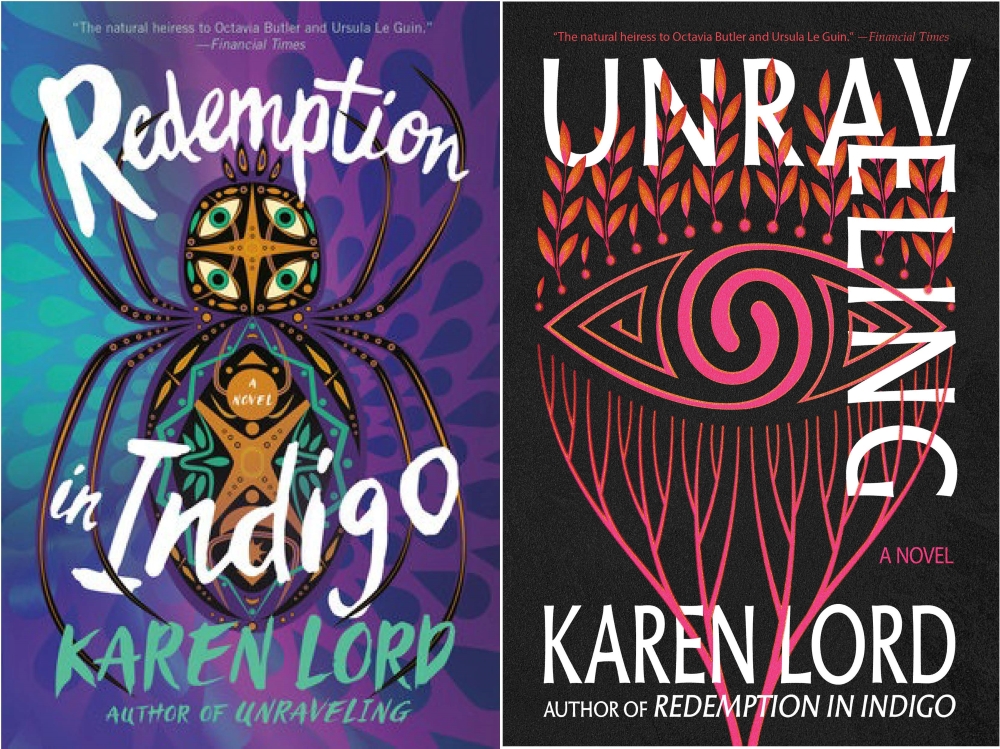
Where Redemption in Indigo reads folksy, and frequently comical, Unraveling turns more into the subgenre of dark urban fantasy, with shades of a mystery police procedural added into a shadowy mix. Lord constructs the story as a labyrinthine exploration across dreams and realities, beyond the normal (human) flows of time and space.
Book Review: The Tainted Cup, by Robert Jackson Bennett
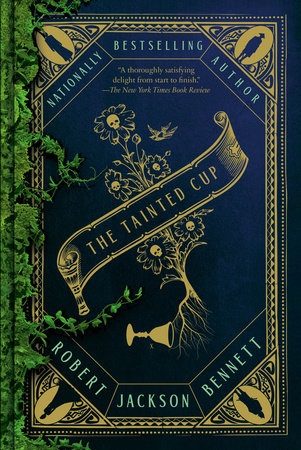
After a man is found dead due to a huge plant having suddenly sprouted from within his body, the investigator and her assistant quickly determine that this is no ordinary, accidental contagion. Their investigation and other events take them from a small frontier town to a metropolis full of factions and intrigues, from jurisdictional disputes to economic entanglements, as more deaths are discovered and a conspiracy unfolds that threatens the Empire itself.
Book Review: Cahokia Jazz by Francis Spufford
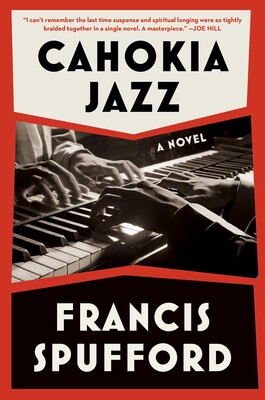
I loved Cahokia Jazz’s blending of noir mystery, mysticism and religion, worldbuilding, action, and as signaled by the title, music.

